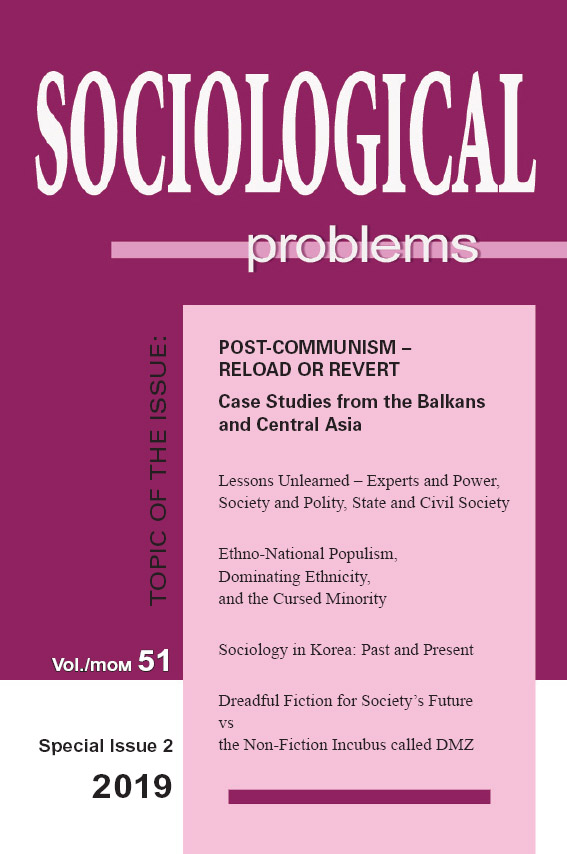The Korean Demilitarized Zone (DMZ) as Liminal Space and Heterotopia
The Korean Demilitarized Zone (DMZ) as Liminal Space and Heterotopia
Author(s): L. A. Atanasova, Lyudmila AtanasovaSubject(s): Politics / Political Sciences, Social Sciences, Sociology, Military policy, Nationalism Studies, Inter-Ethnic Relations, Social Norms / Social Control, Sociology of Politics, Peace and Conflict Studies
Published by: Институт по философия и социология при БАН
Keywords: DMZ; South Korea; North Korea; heterotopia; liminal space
Summary/Abstract: The Demilitarized Zone between South and North Korea is often described as the most heavily guarded border on the planet, and the one with the largest presence of military force on both sides. It is a place of constant tension that may potentially explode, triggering a disastrous war. At the same time, it is associated with hope for peace. In South Korea, the DMZ is perceived in various, often contradictory ways: as a symbol of the tragic destiny of the Korean people, divided by ideology, politics and geopolitical interests; as an area of conflict, emphasizing the otherness of everything that lies beyond it, as a contact point between long-alienated brothers, as an ecological haven for rare plant and animal species, etc.The current study analyses the border and the area along it as a liminal space, exploring the different meanings with which the DMZ is endowed in South Korean society. The liminal properties of the space are shown to contribute to the DMZ’s function as a heterotopia that reflects and inverts certain relations within society. Applying the results of the analysis, the April 2018 summit between the North Korean leader Kim Jong-un and the South Korean President Moon Jae In, held at Panmunjom in the DMZ, is shown to contain ritualistic elements related to the liminality of the venue. Their meaning is interpreted in the perspective of recent political and diplomatic developments in the relations between the two countries.
Journal: Социологически проблеми
- Issue Year: 51/2019
- Issue No: Special 2
- Page Range: 410-424
- Page Count: 15
- Language: English
- Content File-PDF

